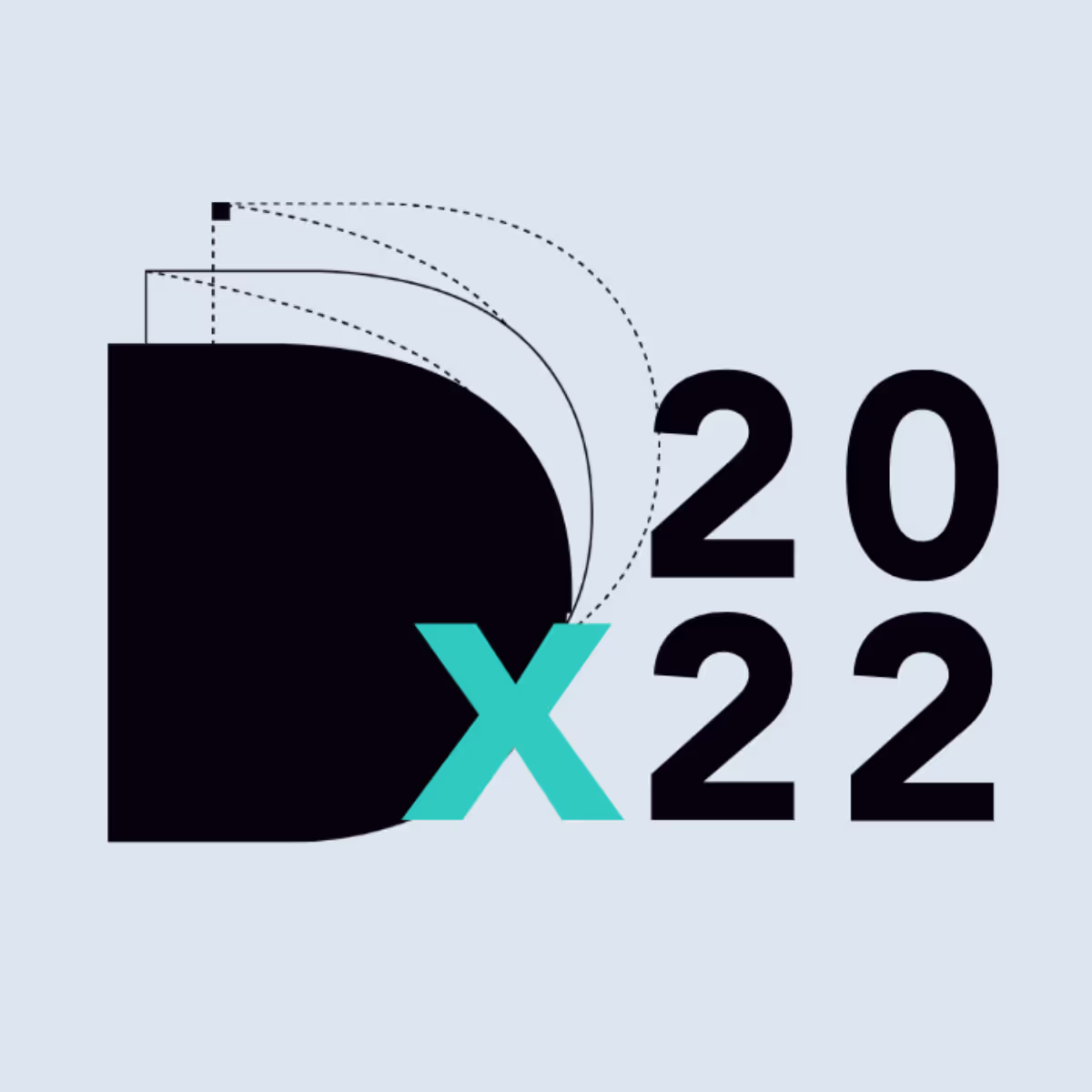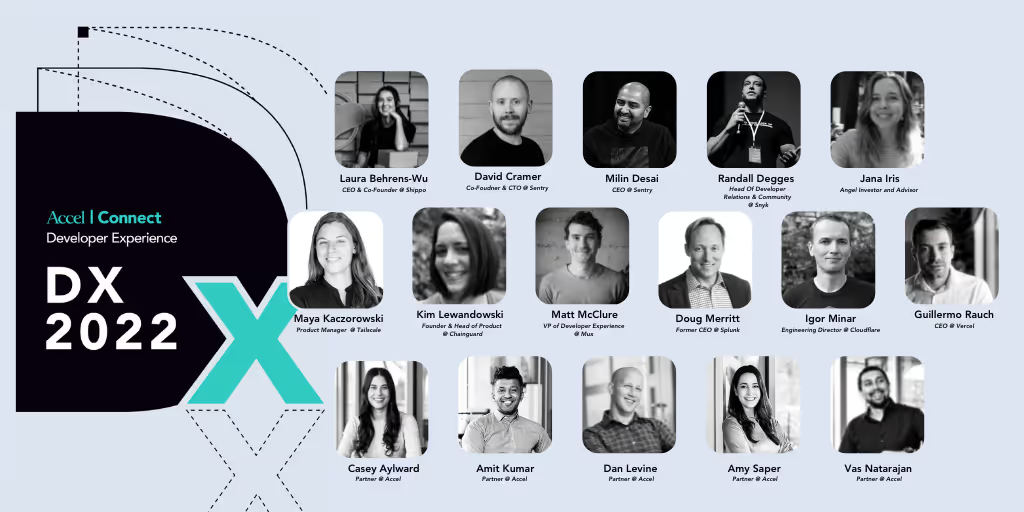
At DX 2022 in July, we brought the dev community together in San Francisco to hear from experts at Cloudflare, Mux, Snyk, Vercel, and more. The panelists covered everything from building developer communities, to enhancing security, to scaling a developer-focused company. If you weren’t able to attend the event live, you can watch the panels in full below. Short on time? We’ve distilled six key takeaways from the day:
1) “Frontend paved the way for what it means to be mobile, and what it means to scale automatically with demand. Now we’re seeing a ripple effect to other industries, with databases becoming serverless.” - Guillermo Rauch, CEO at Vercel and Vercel’s Guillermo Rauch
Guillermo Rauch got his start working in the open source community, and today is best known as the CEO of Vercel. His laser focus on the developer experience has transformed Vercel into an indispensable resource for frontend developers, starting with the popular open-source project, NextJS. Today frontend developers can easily deploy and scale sites, and Guillermo discussed the increasing demand to make backend development just as easy. He unpacked how evolving technology in edge infrastructure will be the next breakthrough, and predicted that the design of future edge technologies will mimic what Vercel’s platform offered frontend developers: simplicity and speed.

2) If you are looking to create relationships, that’s what community is for. If you’re looking to hire, that’s what community is for. Decide on the intention, and make sure both parties benefit.” - Igor Minar, Engineering Director at Cloudflare Accel’s Amit Kumar, Cloudflare’s Igor Minar, Mux’s Matt McClure, and Angel Investor and Advisor Jana Iris
The hallmark of successful developer communities is authenticity. Angel Investor and Advisor Jana Iris, Mux’s Matt McClure, and Cloudflare’s Igor Minar spoke extensively about this, and encouraged community-builders to shift their mindset from short-term sales to long-term value. It takes time, but providing genuinely helpful content without trying to convert customer leads is the only way a strong community develops. Over time, these people become power users, become customers, and sometimes even become employees.
3) “There’s an opportunity in this economic downturn to make a strong pitch for developer-focused API companies – there are massive opportunities to make companies more efficient” –Laura Behrens Wu, Shippo’s CEO Accel’s Amy Saper and Shippo’s Laura Behrens Wu
A lot has changed since Shippo’s Laura Behrens-Wu started building an API for shipping almost a decade ago. Now, this concept of leveraging building blocks to help you get started faster is much more accepted—you can build a sustainable business based around a developer API. Today, more than ever, there are industries that need new API companies. Laura discussed how to find inspiration, by sharing her example building in one of these industries – shipping – where you may not expect to be able to put functionality behind a developer API.
4) “If I had $1 to spend, that $1 would go to the developer. Do the thing that makes the customer happy. Focus on the customer.” - David Cramer, founder of Sentry Accel’s Dan Levine and Sentry’s David Cramer
Always interested in web development since a young age, David Cramer built open-source libraries after dropping out of high school. He went on to build an open-source project to give developers an interesting and useful tool, never intending to turn it into a company. Today that project is known as Sentry. Sentry outpaced its competitors in product launches and customer satisfaction, and maintains developer trust today.
5) “A great security product is one you ideally never see”- Maya Kaczorowski Accel’s Casey Aylward, Chainguard’s Kim Lewandowski, Snyk’s Randall Degges, Tailscale’s Maya Kaczorowski
There is often tension between security teams and developers. Why should developers prioritize security over getting products out? Squashing bugs can feel like an impossible task, since the surface area for attacks has been steadily increasing. Here’s the good news: despite the ever-changing complexities, there are simple steps to take that can protect vulnerabilities. One of the hardest parts is helping to secure development without getting in the way of the engineering team. Chainguard’s Kim Lewandowski, Snyk’s Randall Degges, Tailscale’s Maya Kaczorowski discuss how to make security tolerable – dare we say even simple and fun – for developers so they can ship code. They also discuss the transparency required to maintain customer trust when there is a security breach.
6) “Pricing and packaging are two of the most strategic elements within every organization. But it’s a one-way door. Whatever you go out with, it’s hard to take back. So be thoughtful and experiment like crazy, early.” - Splunk’s Doug Merritt Accel’s Vas Natarajan, Sentry’s Milin Desai, and Splunk’s Doug Merritt
Splunk’s former CEO Doug Merritt and Sentry’s Milin Desai shared the most critical tips for scaling companies. Speaking from their own expert experiences, Doug and Milin gave advice on how to set a company up for success early on by getting pricing and packaging right. They also provided tangible advice for growth phases like avoiding any misuse of management time, creating a culture of consistent testing, and being thoughtful with international expansion.
Great companies aren't built alone.
Subscribe for tools, learnings, and updates from the Accel community.
